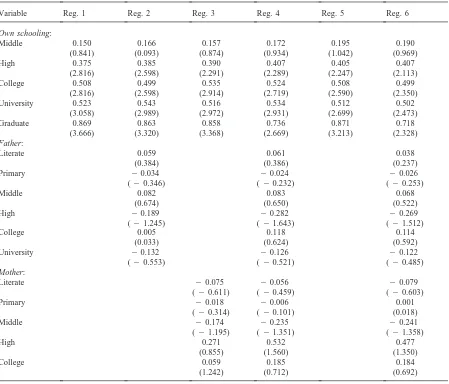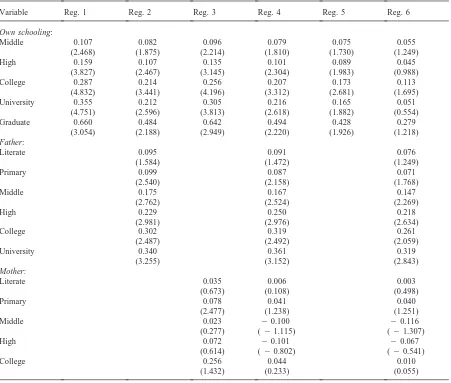Directory UMM :Data Elmu:jurnal:E:Economics of Education Review:Vol19.Issue1.Feb1999:
Teks penuh
Gambar

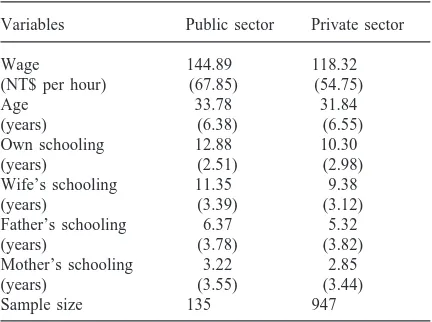
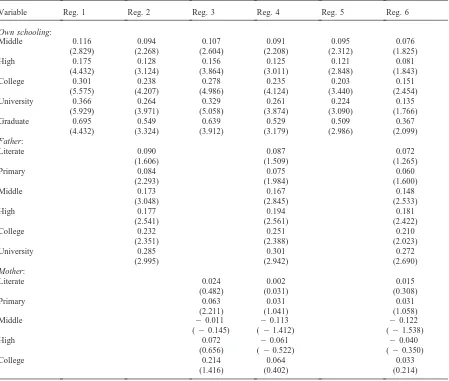
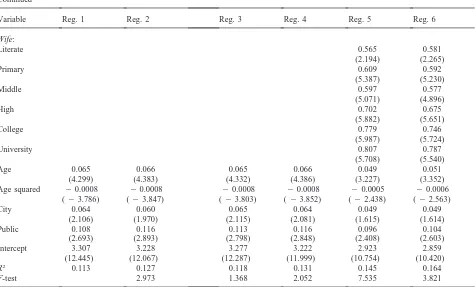
Dokumen terkait
This paper uses data from Poland to examine whether there are any wage differentials between workers in the public and the private sectors. After standardising for
The article is organized as follows: section 2 presents the basic multi-sector model with physical and human capital accumulation; section 3 presents the intertemporal government
More importantly, abnormal returns are significantly positive for firms that are below the median market value of our sample, suggesting that small firms, which have less access
To operate optimally, the university must pay nontra- ditional faculty a greater proportion of nontraditional tui- tion proceeds than it pays traditional faculty out of tra-
Mother’s schooling has strong positive impacts on girls’ grade attainment and current enrollment status but has no effect on boys’ education, while father’s education has effects
In the spending equation, per capita income (negative), student share of population (positive), federal share of funding (positive), and the Herfindahl score (positive)
It produces information about loss of N as a function of agronomic practice, plant growth, weather, and soil characteristics (soil type and agronomic his- tory) expanded from point
I estimate a reduced-form model for school attendance that includes variables to measure household labor market integration, other household factors, teenager characteristics,
